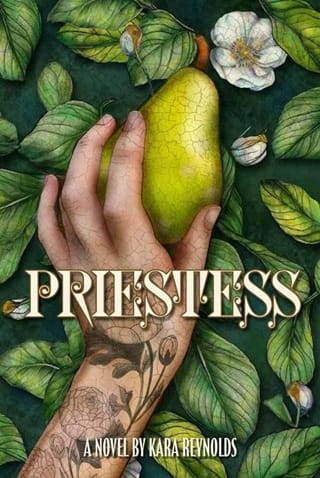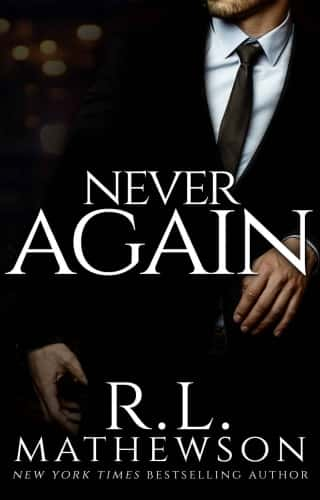16. Paste
“Edie,”
came a voice from the first floor of the barn.
I looked over the edge of the hayloft to see Thatcher standing in the middle of the floor, stalls on either side.
There was a pack of some kind on his back.
Alric stood behind him, looking not up at us but to his left at the horse nearest him.
It occurred to me that Alric had told Thatcher my name and that Thatcher must have noticed the other women referred to me as Edie and not Edith.
Thatcher made a beckoning movement with his hand, indicating I should come down the loft ladder, his face friendly.
I looked at Quinn, River and Mischa, all of them looking back at me, suspicion on their faces.
Helena seemed to not notice the men.
“Do not go down on your own,”
said Mischa.
“I am not in danger,” I said.
“They are our captors!”
“Trust me,”
I said and began to climb down the ladder, my flat summer boots allowing for scant footing on the wooden rungs.
I went carefully.
When my feet were steady on the dirt floor, I faced the two men and approached.
Thatcher slung the sack on his shoulder down to the ground.
He reached into the space under his breastplate, next to the right arm’s opening and pulled out a tiny stoppered bottle and a cheap, tin spoon.
There was a brown sludge inside the bottle.
When I was close enough, he handed both to me.
“It’s a paste. For—”
he hesitated.
“For Helena.
The woman said she needs to eat the whole bottle’s worth.”
“Oh,”
I said, my voice shaky.
“Thank you.
I cannot thank you enough.”
I clutched the bottle and spoon to my chest.
“It’s the least we could do,”
Thatcher said, a darkness to his expression.
Alric finally looked away from the horse and at me over Thatcher’s shoulder.
“And we’ve clothes for you,”
Thatcher said, gesturing to the pack on the floor.
“You found us clothes?”
“This is a big farm,”
he responded.
“Many are in employ here.
Some of the women here agreed to sell us their old garb for coin.
There’s nine dresses in there.
Nothing pretty, I’m afraid.”
He smiled at me.
“But it is clean.”
“This is a great kindness,”
I said.
“Thank you.”
“We will reach Pikestully tomorrow,”
said Alric, looking back at the horse.
“Have your women up and dressed early.
We’ve ground to cover.”
“Is she— How goes she?”
Thatcher asked.
I opened my mouth to tell him and Mischa’s words rang through my head.
They are our captors.
The charity the baldheaded man had shown towards us did not negate the fact that he and the rest of this troop had meant to slaughter us and then decided to abduct us from our home, a home their fellow countrymen had invaded and set on fire.
What had become of me? Did two weeks in the wild make me so weak that the basic decency of bread and the offer of clean garments eclipsed our being their prisoners?
The two men watched me, Alric having again returned his eyes to my face.
I believed they saw the closing of my features, the choice within me to withdraw.
They were not our friends.
 Fullepub
Fullepub 



